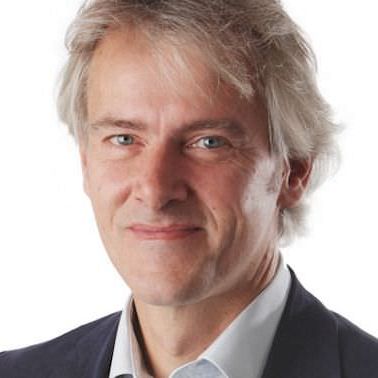"It is our aspiration that all people of Amsterdam with disabilities have an opportunity to become participants in our city"
With an eye on 2015, preparations for the Participation Act and social entrepreneurship in care and welfare are underway. Many are working hard to change it’s course and some are taking the lead. Its takes a new mindset, this entrepreneurship in the care industry. At the same time there is an enormous reserve of labour and the status quo only leads to substitution. That is not the answer.
During the member assembly of De Omslag, but also at the European Inwork Conference that took place during the Participation Fair this past November 11th, Frank Kalshoven took us back in time. He showed us, drawing on statistics, that since the 50’s, more and more people with occupational disabilities end up on the couch and on welfare. And at the doctor’s office. Now it appears that this is no longer affordable and there is no other option than to tighten our belt buckle, or in other words to create economy out of the hours of work by people with an employment disability. Frank Kalshoven wrote a column for De Omslag and pronounced: We’re creating economy!
COLUMN
Creating our own economy from the occupationally disabled
Because the hurdles to partake in the labour market keep getting higher, it is becoming increasingly harder for people with a disability, of any kind, to secure a place in it. Hundreds of thousands of willing workers have no choice but to remain on the sidelines.
What is being done about this in the Netherlands? I see two larger movements.
One: Social workers at the forefront are inventing new solutions. Autistic people testing software. The visually impaired working in darkened restaurants. Great. But too small-scale.
Two: Under the threat of imposing quotas, the VNO-NCW has been bound to voluntarily create over one hundred thousand jobs for the occupationally disabled. This is intended to compensate for the loss of jobs in Social Workplaces. Fine. But it is done reluctantly.
To really make headway, it is my standpoint, that we search for fierce economic solutions. Large-scale. And not unwillingly but with full enthusiasm.
How? Isn’t the market working against this? Not if we create a new one ourselves.
Suppose: On January 1st, for every 25 employees an employer must buy a certificate in the amount of 10,000 euro from the Ministry of Social Affairs. This certificate obligates the employer to offer 1500 work hours to occupationally disabled persons. If they satisfy these conditions the certificate is handed in on December 31st and the 10,000 euro is reimbursed. This comes across as more of a simple obligation (subject to a penalty payment).
Suppose however: the certificates are marketable and we set up an exchange where employees who are not willing or able to provide space for occupationally disabled are able to sell their certificates. To whom? To employees that are willing and able. How much does a certificate for 1500 work hours cost on the exchange? Substantially less than ten thousand euro, because the selling employee wants out of their obligation. Let’s say 2,500 euro. The employer that does work with the occupationally disabled buys the certificate for 2,500 euro and at the end of the year receives 10,000 euro for that certificate. In other words: the selling employer basically funds 7,500 euro to the buying employers workplace.
An exchange? commerce? Making money off of the occupationally disabled? Yes please. Because by creating new economy around the occupationally disabled we generate new job opportunities. Not small in scale and with the finest intentions. Not grudgingly. Large-scale. And in fully enlightened self-interest.
Frank Kalshoven is director of the Argumentation Factory. Comments? Email: frank@argumentenfabriek.nl.

